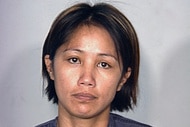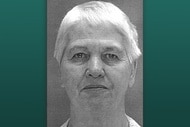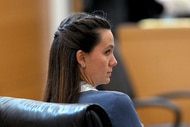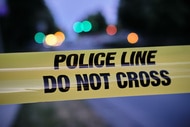Create a free profile to get unlimited access to exclusive videos, breaking news, sweepstakes, and more!
What Made Freddy Kassab Change His Mind About Son-In-Law Jeffrey MacDonald And See Him As A Vicious Family-Killer?
“Who else is going to fight this thing if not me?” Freddy Kassab said of his years-long quest to put his son-in-law Jeffrey MacDonald behind bars for killing his stepdaughter and two young granddaughters.
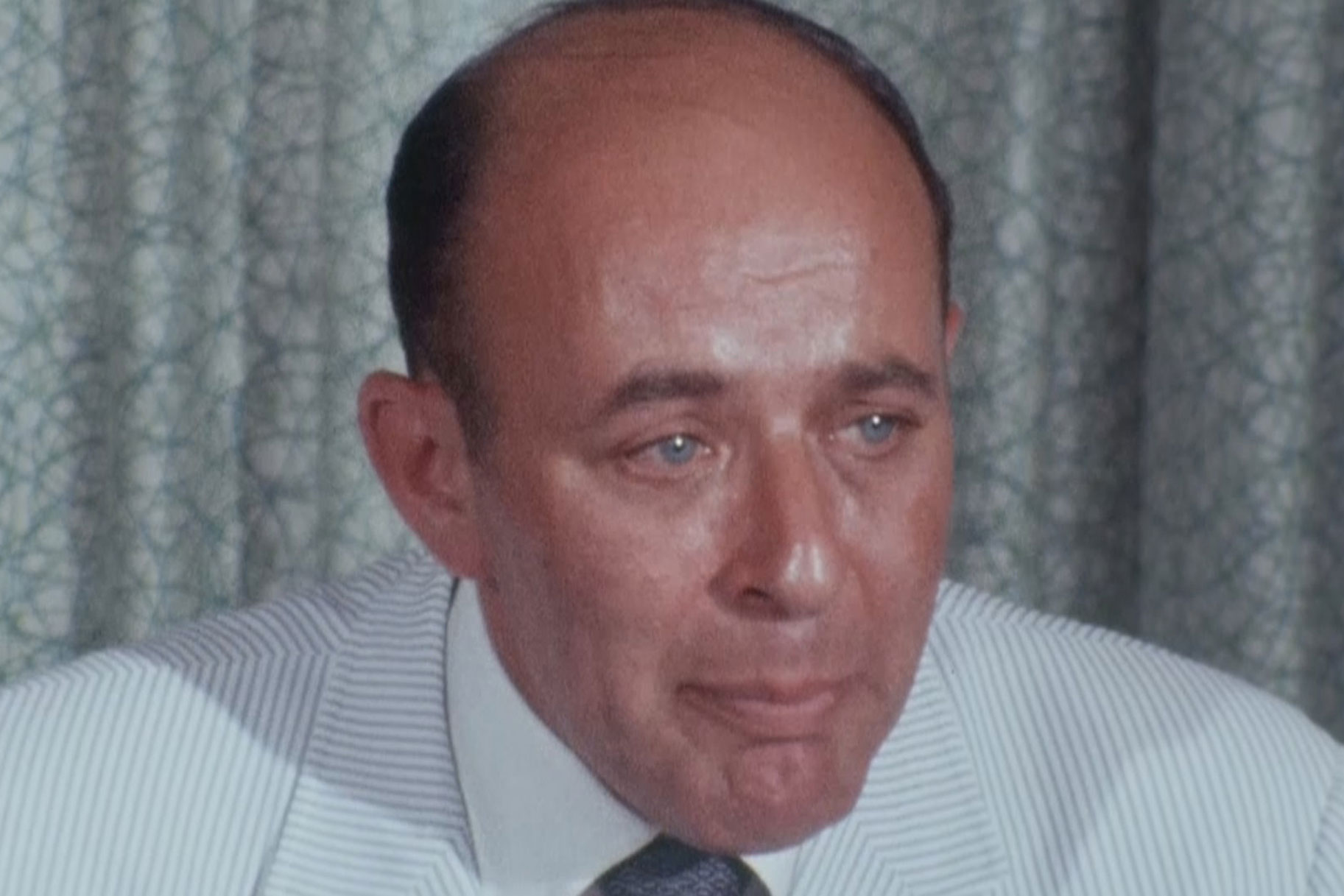
When Jeffrey MacDonald came under suspicion for savagely killing his pregnant wife and the couple’s two young daughters, one man rushed to publicly support him: his father-in-law Freddie Kassab.
But in the years that followed the gruesome murders, Kassab drastically changed his opinion of his surgeon son-in-law and became one of MacDonald’s fiercest adversaries—leading the charge to have MacDonald tried for three counts of murder in the case.
MacDonald was ultimately convicted in 1979 for killing his pregnant wife Colette MacDonald and their two young daughters, Kimberley and Kristen.
But just what changed Kassab’s mind about the man he once called “a nice, presentable young man?"
Colette MacDonald and her daughters suffered horrific violence as they were killed on February 17, 1970 at their Fort Bragg home. Colette had been stabbed 16 times and punctured 21 times with an ice pick, while 5-year-old Kimberley was killed by six blows to the head and eight to 10 stab wounds, according to a 1998 Vanity Fair article. The couple’s youngest daughter, 2-year-old Kristen, had a total of 33 stab wounds.
Jeffrey MacDonald had also been at the home at the time, but he suffered only minor injuries compared to what his family endured. His most significant injury was a puncture wound and deflated lung.
He claimed that he had been asleep on the couch when at least four drug-crazed hippies broke into the home and savagely killed the family. He told authorities that he tried to fight off the attackers but was wounded and eventually collapsed in the hallway—later regaining consciousness and discovering his family had been killed, according to the new FX docuseries “A Wilderness of Error.”
Finding Family Support
Kassab — a one-time Canadian Army intelligence operator who had once lost his own wife and daughter in a bombing of London during World War II — initially believed MacDonald’s account of the night and became a staunch and vocal supporter of his son-in-law, the Washington Post reported in 1984.
He drew on his previous knowledge of MacDonald, who he had met years earlier while courting Colette’s mother, Mildred. MacDonald had been just a teenager at the time and was dating Colette, his high school sweetheart.
The couple got married when Colette was just 20 years old after discovering that she was pregnant.
“He was a nice, presentable young man. Good potential for the future, so therefore we saw nothing wrong with them getting married,” Kassab once said of his son-in-law, according to the docuseries.
But while Kassab saw MacDonald as an engaged and loving father and husband, Army investigators grew suspicious of MacDonald’s account of the killings and ordered him to appear for an Article 32 hearing—a military process used to determine whether there was enough evidence to pursue formal charges against MacDonald.
Kassab testified on MacDonald’s behalf, declaring, “If I had another daughter, I’d still want the same son-in-law.”
Investigating Officer Warren Rock ultimately recommended the charges be dismissed at the conclusion of the hearing and MacDonald began to move forward with his life, leaving the Army, selling most of the family’s possessions in a yard sale, and moving to California.
MacDonald settled into bachelor life, buying a yacht and marina-front condominium in Long Beach, California, Vanity Fair reports.
A Relentless Stepfather
But Kassab wouldn’t let the case rest.
He remained haunted by the horrific way his stepdaughter and grandchildren had lost their lives.
Although Kassab didn’t join the family until Colette was a teenager, he had always been close with his stepdaughter.
“She was the type of girl—the best way I can explain it, I never met a girl that did not like Colette,” he once told the Washington Post. “She was a pretty girl, not beautiful, but pretty, and she was down to earth and she hated to see anybody hurt.”
Kassab wanted to find justice and began writing letters to the Army and congressmen slamming the investigators for their errors and urging authorities to continue the investigation.
“I accused the Army of every blunder that they made in the original investigation,” he once said, according to the docuseries. “I personally delivered a copy by hand to every congressman and every senator in the country.”
At the time, Kassab still believed the real perpetrators of the crime had been the four hippies that MacDonald said had broken into the home.
His relentless persistence prompted the government to open a second investigation.
“We decided we needed Freddie and Mildred Kassab on our sides,” lead investigator Peter Kearns said in a December 1986 lecture on the case, according to the docuseries. “They’re the ones that wrote the Congress and said the Army screwed up this crime scene. We needed the Kassabs to shut up, just calm down, let us do the investigation and we’ll find out who did it.”
Investigators identified at least 240 leads in the case—but the evidence continued to point back to the MacDonald.
“We would frequently meet at the crime scene and brainstorm the whole scenario. Walk through the house, walk through the rooms and talk about what we know,” investigator Mike Pickering said in the docuseries. “Every time we pursued a lead it just turned us around and directed us back toward Jeffrey MacDonald. And the physical evidence, the circumstantial evidence, just kept mounting against him and contradicting his story for events from that evening.”
Seeds Of Doubt
Kassab’s unwavering support of his son-in-law also began to crumble as Kassab—who worked in telephone sales for the Quality Egg Co.—began to question MacDonald’s account of what happened.
He was troubled by MacDonald’s apparently cavalier attitude about the brutal murders on an appearance of "The Dick Cavett Show."
Bob Stevenson, Colette’s brother, described his stepfather’s reaction to the television appearance as “visceral” and said it had “wrenched his guts.”
Stevenson had a similar reaction.
“Things weren’t being said right, inflections of the voice,” he said. “It sickened me and it enraged me.”
The veneer of the MacDonald’s perfect marriage had also began to crack. MacDonald, it appeared, had been endlessly, unfaithful having at least 15 girlfriends, Vanity Fair reports.
Colette’s sister-in-law Vivian “Pep” Stevenson told the outlet that Colette knew of the affairs and was growing tired of the infidelities before she died, at one point lamenting, “I don’t want to do this anymore.”
Kassab’s suspicions deepened after he received a copy of a transcript of the Article 32 hearing and began to pore through the evidence himself.
“He read the papers at a little square table and he sat there and he chain smoked three packs a day, day after day after day going over and over everything,” Bob Stevenson recalled in the docuseries.
For his part, MacDonald called Kassab and made a grandiose claim that he and some Green Beret buddies had gone out on the streets to look for the hippies responsible and found and killed one of them.
But there was no evidence that had ever taken place. MacDonald claimed he'd broke his arm in the fatal scuffle, but Kearns would later say in an interview that authorities had MacDonald under surveillance at the time and did not observe any broken arm.
MacDonald later admitted the claim had been a lie.
“I was keeping Freddy happy,” he said, according to Vanity Fair. “The man is a fanatic.”
But it wasn’t until Kassab revisited the crime scene himself in 1972 that he finally believed that his son-in-law had been the killer.
“We reconstructed the murders using what McDonald said. We even came back at night so we would have the same lighting conditions as the night of the murders. And absolutely nothing fit,” Kassab told the Orlando Sentinel in 1989.
Kassab said in that moment, as he stood in the preserved crime scene, he realized the man he had once considered a loving partner to his stepdaughter had slaughtered his family and then staged the attack.
“When we were walking out of the house, I was warned that convicting MacDonald wasn’t going to be that simple,” Kassab said. “I remember saying, ‘It doesn’t matter. I’ve got the patience of Job.’”
Finding Justice
It would take six more months before Mildred Kassab reached the same conclusion.
“I held out to the last ditch. I wouldn’t allow myself to believe it, because it made it so much worse that it was he instead of strangers,” she later said in an interview, according to the docuseries.
Together, Mildred — who Stevenson said came to “mortally hate” her former son-in-law — and Freddy Kassab pushed for MacDonald’s arrest.
“Freddy was not going to quit. He had biblical levels of persistence,” Bob Keeler, a reporter for Newsday, recalled in “A Wilderness of Error.”
The persistence paid off and in 1974, a grand jury indicted Jeffrey MacDonald on three counts of murder after seven months of testimony and evidence, according to Vanity Fair.
But MacDonald’s legal team—led by Bernie Segal—persuaded the Fourth Circuit Court to throw out the charges, claiming that MacDonald had been denied a speedy trial.
Prosecutors appealed the decision to the Supreme Court and in 1978 the country’s highest court decided to reinstate the indictment.
MacDonald was convicted of the three murders in 1979, nine years after Colette and her children were slain.
Haunted By The Crime
Even after the conviction, the Kassabs remained haunted by the heinous crime.
“To realize he had done it, and Colette loved him, and when you sit back and picture in your mind’s eye what happened that night, with him attacking, and I know from the autopsy reports what was done to the two children, you can’t help but visualize in your mind, though we don’t talk about it,” Freddy Kassab told The Washington Post in 1984, just as the popular mini-series “Fatal Vision,” which depicted the crimes, was airing across the country. “My wife and I can sit for hours and days and not talk to each other, but we’re both thinking, you know. And we’re very fortunate. Most people who go through traumatic things like this, nowhere near as lengthy, almost always end up in divorce, but with us it’s drawn us closer.”
The couple sued MacDonald in 1987 to try to prevent him from profiting from Joe McGinniss’ book “Fatal Vision,” which served as the inspiration for the mini-series.
A judge later awarded MacDonald $50,000 of the proceeds but gave the remainder of his $325,000 share to attorneys, MacDonald’s mother and the Kassabs.
In 1989—after Freddy Kassab had been diagnosed with emphysema—he decided to videotape his arguments against MacDonald’s release and arranged for the tape to be played, if necessary, in front of a parole board after he died, according to the Orlando Sentinel.
“Who else is going to fight this thing if not me?” Kassab said, who had moved to Florida from his Long Island home the year before.
Mildred and Freddy Kassab both died, months apart, in 1994.
Stevenson told reporters in 2005 that he had promised Freddy Kassab on his death bed that he would continue the family’s quest to keep MacDonald behind bars, according to The Raleigh News & Observer.




